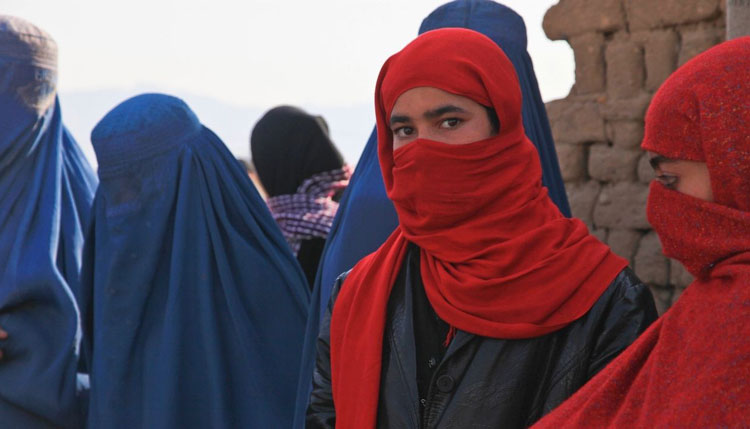On the occasion of the celebration of the People’s Court for Women of Afghanistan, whose hearings take place yesterday and today at the Colegio de la Abogacía de Madrid (ICAM), Casa Asia and Casa Árabe organize tomorrow Friday, October 10 the round table The People’s Court for Women of Afghanistan: What is it, what does it imply, what does it bring?
Azadah Raz Mohammad, one of the four prosecutors of the People’s Court for Afghan Women and Legal Adviser on the Campaign to End Gender Apartheid, and Shaharzad Akbar, will participate in the round table, Afghan human rights activist currently exiled to the UK, where she is Executive Director of the Afghan human rights NGO Rawadari. The event will be moderated by Rachel Reid, a human rights expert and contributor to the Network of Analysts in Afghanistan.
The event will be held in English. Free activity upon registration at this link.
The hearings to be held at ICAM will mark the start of the People’s Tribunal for Afghan Women, within the framework of the Peoples’ Permanent Tribunal (TPP). During these days, which will involve about 100 Afghan people, the impunity around gender-based persecution under the Taliban regime will be addressed through the testimonies of women and girls who have lived under their control.
The People’s Permanent Tribunal (TPP), an international court of opinion created in 1979, emerged as a response to the failure of judicial institutions after the Vietnam war and continues to offer civil society an alternative way to access justice, addressing cases of gross violations of human rights, crimes against humanity, war crimes and genocide.
Through the expert voices of Azadah Raz Mohammad and Shaharzad Akbar, it will analyse the functioning of these courts, the reasons why Afghan women have resorted to this way when the mechanisms of international justice have failed, their expectations of these hearings, the lessons that can be drawn from similar experiences in Asia and the Arab region, as well as the impact this initiative may have in other contexts where international justice does not offer answers.
While this coalition supports all accountability mechanisms on Afghanistan and welcomes the International Criminal Court arrest warrants, it insists that more comprehensive and sustained action is required. The People’s Permanent Tribunal process highlights the urgent need for a comprehensive, victim-centred and holistic approach to transitional justice.
